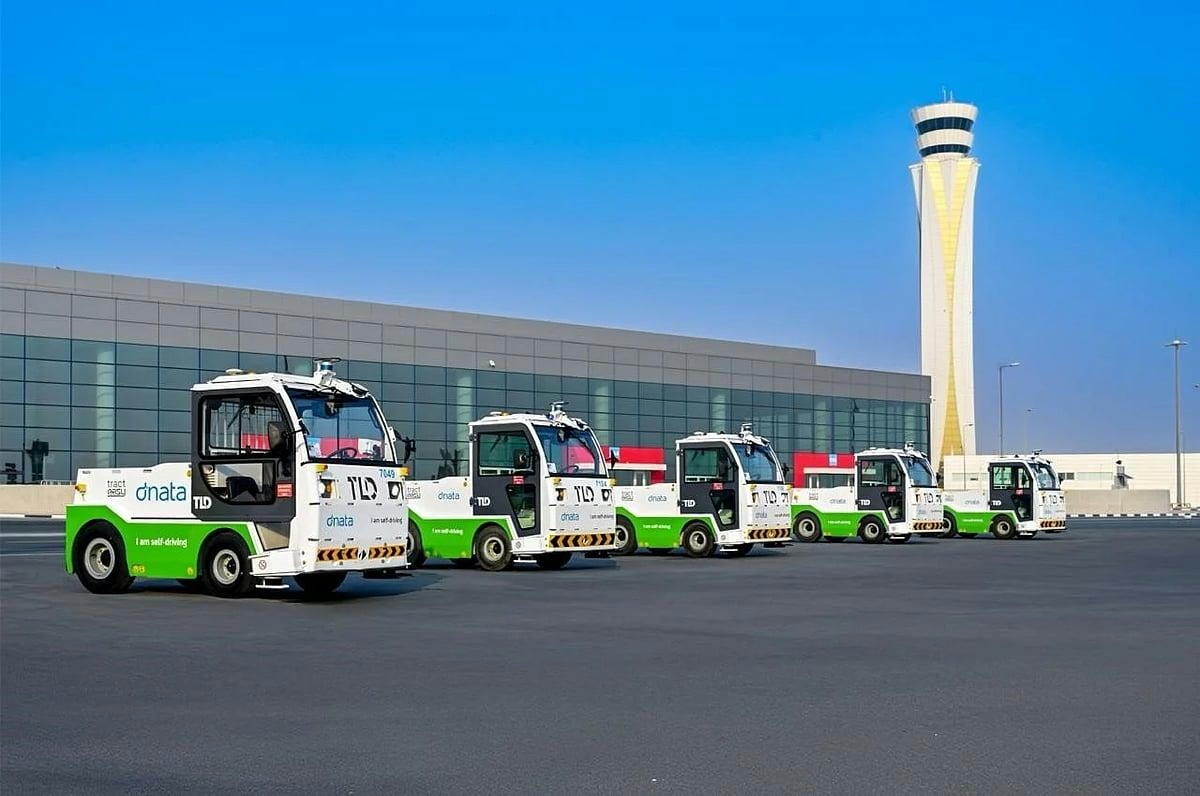AeroGenie — Your Intelligent Copilot.
Trending
Categories
UAE Approves Trial of Autonomous Baggage Vehicles at Dubai World Central

UAE Launches Trial of Autonomous Baggage Vehicles at Dubai World Central
The United Arab Emirates has embarked on a pioneering initiative in aviation technology by approving the country’s first trial of autonomous baggage handling vehicles at Dubai World Central (DWC), also known as Al Maktoum International Airport. This development, facilitated through a collaboration between the General Civil Aviation Authority (GCAA), Dubai Airports, and dnata, represents a significant milestone in the UAE’s strategic push to incorporate automation and robotics within its aviation infrastructure.
Advancing Automation in Airport Operations
With regulatory clearance secured, dnata, a global leader in air services, will deploy a fleet of autonomous baggage vehicles in live airside operations at DWC. The trial is designed to evaluate the potential of driverless vehicles to enhance ground handling efficiency, reduce operational costs, and improve the passenger experience by streamlining one of the most critical and time-sensitive components of airport logistics.
The GCAA has established a rigorous regulatory framework to govern the trial, ensuring that safety remains paramount throughout the testing phase. This framework underscores the UAE’s commitment to innovation while maintaining strict operational controls, positioning the country at the forefront of aviation automation on the global stage.
Strategic Importance of Dubai World Central
Dubai World Central, envisioned as one of the world’s largest and most technologically advanced airports with a projected annual capacity of 260 million passengers, offers an ideal environment for testing such advanced technologies. The autonomous baggage vehicle trial aligns with Dubai’s broader ambitions to introduce autonomous vehicle technologies, including plans for full self-driving car deployment by 2026. This initiative complements similar efforts underway in Abu Dhabi, where self-driving shuttle services are currently being tested.
Despite the promising outlook, the transition to fully autonomous systems faces several challenges. Regulatory complexities, public acceptance, and the integration of new technologies with existing airport infrastructure remain significant hurdles. The trial will provide critical insights into these challenges, enabling stakeholders to better understand the practical implications of deploying autonomous vehicles in a fast-paced, highly regulated airport environment.
Industry Impact and Future Prospects
The announcement has been met with positive reactions from the logistics sector, which recognizes the potential for substantial cost savings and operational improvements in baggage handling. The UAE’s move is expected to encourage other international airports to explore similar technological advancements to remain competitive in an increasingly automated industry.
As dnata conducts these trials alongside traditional ground handling operations, the project will serve as a vital test case for the feasibility and benefits of automation in aviation. This initiative supports the UAE’s vision of fostering the most efficient, safe, and innovative aviation ecosystem, reinforcing its position as a global leader in airport technology and smart mobility solutions.

Emirates Unveils Cabin Design for New Boeing 777X

Eighteen Years On, the Airbus A380 Remains Central to a $34 Billion Airline

How a boom in luxury airline seats is slowing down jet deliveries

Navitaire Outage Attributed to Planned Maintenance

DigiYatra Debuts Outside Aviation at India AI Impact Summit

Vietnam Orders Strengthen Boeing’s Commercial Outlook

Airbus Signals Uncertainty Over Future A400M Orders

JobsOhio Awards $2 Million Grant to Hartzell Propeller for Innovation Center

Collins Aerospace Tests Sidekick Autonomy Software on YFQ-42A for U.S. Air Force CCA Program

How the Airbus A350-1000 Compares to the Boeing 777
